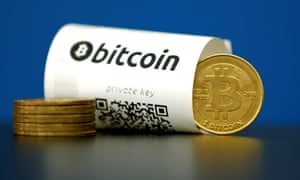Blockchain: the answer to life, the universe and everything? | World news | The Guardian

If you aren’t tied to the tech community, you might not have picked up on this salvation rhetoric. But you probably have heard of #bitcoin, which burst into the public consciousness before imploding dramatically in 2014.
But now, bitcoin is starting to look less important than the engine that drives it – the #blockchain. It was created to solve a problem that had been puzzling digital activists for decades: how to create digital property without a central authority keeping track of who owns what.
The answer to that question, first proposed by bitcoin’s pseudonymous creator, Satoshi Nakamoto, was to create a decentralised digital ledger, keeping track of every transaction made, and with its accuracy guaranteed through the combined honesty of the entire network.
The core of the idea is to get computers burning energy in order to prove that they are trustworthy, and stamping that trust on the “blocks” of recorded transactions. You could still lie to the network – but you’d need to burn more energy doing so than every honest participant, combined.
Bitcoin was the first #technology to use the blockchain, but the currency is now starting to look a bit like the steam pumping engines invented in the 17th century. Yes, it’s ingenious, but the real revolution comes when the underlying technology is used for something altogether new.



Reply